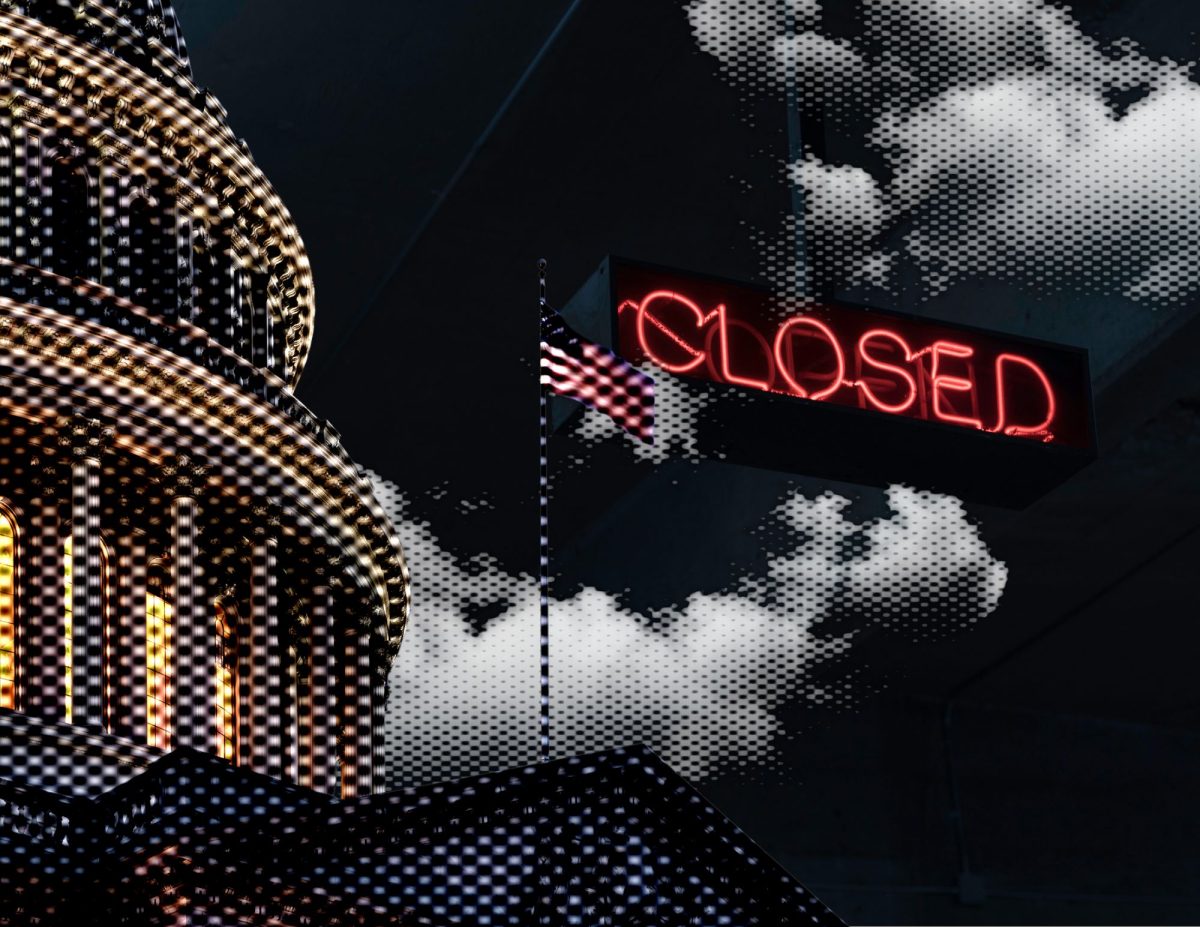
Gabriela Morillo Dal Piccol
The U.S. is currently experiencing a government shutdown. The shutdown began on Oct.1 after Congressional parties disagreed on a bill.
The United States entered a government shutdown on Oct. 1 because of Congress’ inability to pass a bill concerning yearly fiscal budgets. This, in turn, temporarily halted the funding of federal organizations.
Republicans proposed a short-term solution to finance the government until Nov. 21, but Democrats want the budget to address their healthcare concerns caused by the One Big Beautiful Bill Act, which cut Medicaid funding and heightened the price of health insurance premiums.
Republicans state that the shutdown was instigated by Democrats who wished to extend free healthcare for “illegal aliens” and sex-change surgeries funded by taxpayers.
Republican National Committee Chairman Joe Gruters released a statement declaring that “Democrats are holding up critical funding for our veterans, seniors, law enforcement, and working families because they want to pass a far-left wish list costing more than $1 trillion.”
Democrats are angered by the Republicans’ persistence in this rhetoric and their refusal to address what they perceive as a crisis in American healthcare.
“[Because of Republicans’] refusal to address the Affordable Care Act tax credits that are on the brink of expiring, millions of Americans are about to see their healthcare costs double, triple, or quadruple,” Democratic Representative Hakeem Jeffries of New York said.
Federally funded organizations affected by the shutdown include the Federal Aviation Administration (FAA) and the U.S. Department of Agriculture (USDA).
The lapse in funding in the FAA, in particular, caused many flight delays as air traffic control stations remain understaffed, with airports such as the Ronald Reagan Washington National Airport delaying about 10,000 flights on Monday and Tuesday alone.
The USDA has also experienced financial suspension, with services such as the Special Supplemental Nutrition Program for Women, Infants, and Children impacted as a result.
Federal employees who have been furloughed — or have had their salaries temporarily ceased as a means to address the economic conditions of their government-based employers — missed their last paycheck as of Monday. These workers are supposed to receive their missed payment only once the shutdown has been alleviated, as stated in the Government Employee Fair Treatment Act, signed into law by President Donald Trump in 2019; however, this may not hold true for the current shutdown.
Trump is taking this opportunity to withhold back pay for workers he believes “don’t deserve to be taken care of,” and will be reimbursed in an unspecified “different way.” His administration is also urging agencies to consider widespread firings during this shutdown.
Other laborers, such as contractors and janitors, are initially not protected by this law and therefore will not receive back pay. Members of Congress continue to be paid during the shutdown under Article I, Section 6 of the Constitution.
Many are angered by what they believe is the manipulation of federal workers, who often live paycheck to paycheck and cannot afford to go such prolonged amounts of time without their salary.
“Federal employees are hard-working public servants, not part of anyone’s political game,” Federal Director of the National Association of Government Employees, Lee Blackmon, said.
Many agree with the sentiment that the guarantee of employees’ pay is of greater importance than political agendas. Randy Erwin, president of the National Federation of Federal Employees (NFFE), condemns Trump for exacerbating the damage imposed on the financial livelihoods of federal employees.
“He’s antagonizing hardworking federal employees whose only crime is caring and wanting to work for the American people,” Erwin said. “It’s despicable.”
“Federal employees make 25% less than private sector workers doing the exact same jobs,” Erwin said. “They’re living close to poverty already. Do your damn job, and pass a budget. That’s going to require a little compromise.”
The shutdown is still ongoing, and congressional parties have yet to negotiate a solution.